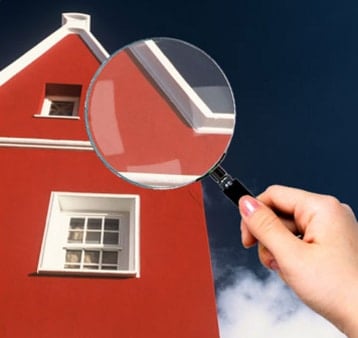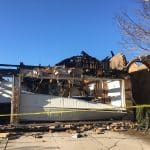By Keith Boggs.
Posted August 20, 2019 at 11:15am.
It’s hard to believe that we’ve been performing Dallas home inspections for more than 10 years now! And we’ve learned from experience that a lot of people don’t know what to expect when a home inspector walks through the front door. What is your inspector required to do by law? What’s not required? What else do top-notch home inspectors do? How do they go above and beyond?
You want to hire the best, right? The inspector who will uncover everything possible? What should you expect? I’m bringing you up to speed on the basics, so the next time you need a home inspection, you’ll be in the know!
To kick it off, you should know that regardless of your home inspector’s background, in Texas, all are required to be licensed by the Texas Real Estate Commission (TREC). Having a TREC license indicates your home inspector has a certain level of education and experience. It means he is supposed to adhere to the specifications laid out in the Real Estate Inspectors Standards of Practice and follow its Rule of Professional Conduct and Ethics. These are all detailed in the Office of the Secretary of State’s Texas Administrative Code.
And while we can’t cover everything it specifies in a blog post (and frankly, you wouldn’t want to read it!), here is a high-level breakdown of what we think is most important for you to know.
What Your Home Inspector is Required to Do
TREC’s Standards of Practice are very specific about how your home inspector is supposed to go about his inspection — which TREC describes as “a limited visual survey and basic performance evaluation of the systems and components of a building using normal controls that provides information regarding the general condition of a residence at the time of inspection.” You should know that your home inspector is required by TREC to:
- Visually inspect “accessible” systems or components from near proximity and from the interior of the attic and crawl spaces. The definition of “accessible” is largely left to the judgment of the inspector.
- Operate equipment and appliances in at least one mode with ordinary controls at typical settings.
- Follow the minimum inspection requirements for structural systems, electrical systems, HVAC systems, plumbing systems, and appliances. There are detailed descriptions for each of these areas describing what inspectors have to do, what they don’t have to do, and what they have to report.
- Complete an inspection report using TREC’s standard inspection report form, indicating whether items were inspected, not inspected, not present, or deficient — and explaining the findings in the report.
- Deliver that report to you within three days.
- Adhere to a code of professional conduct and ethics, which provides guidelines for how an inspector should conduct himself when working with a client, the general public, or another inspector and how he should do business in general, both financially and professionally.
What Your Home Inspector is Not Required to Do
TREC also details what your inspector doesn’t have to do in a home inspection. This is not the complete list, but you should know that he’s not required to:
- Inspect items other than the specific items listed in the Standards of Practice.
- Inspect anything that’s not “accessible.” This includes anything that’s buried, hidden, or concealed.
- Inspect a number of automated and programmable control systems, including smart home devices.
- Inspect concrete areas, like driveways and sidewalks.
- Inspect optional systems, including sprinkler systems, swimming pools, spas, hot tubs, pool equipment, outbuildings, wells, or septic systems. (If he chooses to inspect these items, the Standards of Practice provide minimum inspection requirements.)
- Fix issues that prevent him from inspecting something. For example, he doesn’t have to light a pilot to operate a hot water heater. He doesn’t have to connect equipment that isn’t ready to be turned on using normal controls.
- Determine the cause or effect of any deficiencies he finds.
- Use specialized equipment, including thermal imaging equipment, moisture meters, and gas or carbon monoxide detection equipment, among others.
- Use specialized procedures, for example, environmental testing, elevation measurement, or specialized calculations.
- Report cosmetic issues or those that have been caused by ordinary wear and tear.
- Determine whether the home has pests, termites, or other wood-destroying creatures.
- Determine the presence of environmental hazards, for example, asbestos, lead-based paint, mold, and mildew.
- Anticipate future events or conditions that may occur after the inspection, for example, future decay or deterioration or the future performance of a component he inspects.
- Provide you with recommendations related to repairs or estimate their costs.
- Include photographs in your inspection report.
How Top Home Inspectors Go Above and Beyond
TREC’s Standards of Practice don’t keep an inspector from providing a higher level of inspection than the minimum. Obviously, he shouldn’t inspect a component without proper training and knowledge, but top-notch inspectors go above and beyond the minimum standards required by TREC. And that’s what you should look for when you’re hiring one.
Here’s how we make sure we are providing the best service to our valued clients. We do inspect your sprinkler systems, driveways, walkways, and patios. We use thermal imaging cameras, even though we don’t have to. We will make recommendations on repairs for the defects, talking in laymen’s terms so you can learn from our experience. If we see signs of wood destroying insects or other hazards, we’ll let you know. (Why wouldn’t we?) And we’ll deliver our report, which averages about 70 pages and includes 80 to 100 high-resolution photographs, usually the same day as the inspection.
We will share with you what we would want to know if we were deciding whether or not to buy this home — and provide you with the information you need to negotiate a fair price. This is just a short list of how we go beyond the minimums. And we look forward to exceeding your expectations every time. Give us a call, so we can prove it to you!
Image Credit: Mark Moz
About Keith Boggs
Keith Boggs is the owner of Stonebriar Property Inspections. He is your personal home inspector, and his investment in the company will be reflected in the quality of your inspection. Mr. Boggs’ inspection reports are professional, comprehensive, detailed, and clear. They average about 70 pages and include 80 to 100 color images and include detail findings and recommendations along with tips and best practices for maintaining your home. Stonebriar Property Inspection’s customer reviews speak to Keith’s reputation as an ethical, reliable, and courteous Dallas home inspector. Stonebriar Property Inspections is fully licensed by the Texas Real Estate Commission for home inspections and the Texas Department of Agriculture for termite/wood destroying insect inspections.
Are you wondering How much does a home inspection cost? We have the answer to that question, and more questions in our home inspection resource and FAQ section.





